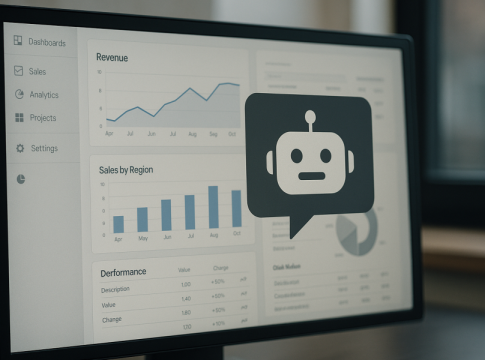The Rise of Agentic AI: Transforming Enterprise Software
A Paradigm Shift in Software Delivery
The advent of Software as a Service (SaaS) revolutionized how businesses operate by facilitating online tool access through a subscription model. However, traditional SaaS offerings often fell short for specific industry needs, paving the way for vertical SaaS—software tailored to particular sectors. This trajectory has now reached a pivotal juncture with the emergence of agentic AI, a technology that promises to redefine the boundaries of what enterprise software can achieve.
Beyond Mimicking Humans: The Power of Agentic AI
Unlike earlier iterations of automation such as Robotic Process Automation (RPA), which primarily mimicked human tasks, agentic AI leverages autonomous agents that do more than just replicate actions. These sophisticated systems can analyze considerable data, make informed decisions, execute tasks, and manage workflows in real-time—features that elevate them beyond traditional definitions of software.
Agentic AI agents utilize large language models to engage in high-level reasoning, all without requiring constant human intervention. Imagine a digital sales assistant tirelessly identifying new customers while another agent addresses service requests, all within a connected system. This capability not only promises efficiency but also opens up a universe of possibilities for process improvement across organizations.
Market Adoption and the Competitive Edge
According to Gartner, by 2028, around one-third of enterprise software applications will incorporate agentic AI—a significant leap from less than one percent in 2024. A recent survey by Cloudera reveals that 83% of IT leaders see integrating AI agents as vital for maintaining a competitive edge, with 60% expressing concern about falling behind if they do not adopt these technologies this year.
Salesforce CEO Marc Benioff aptly describes this shift as ushering in a “new labor model” designed to boost productivity and efficiency in a labor market still grappling with staffing challenges post-pandemic.
Bridging the Gap: Human and Digital Labor
Agentic AI promises to enhance the human workforce rather than replace it. Consider the sales executive utilizing a Customer Relationship Management (CRM) system: an AI agent could interact with clients, pinpoint opportunities, and even finalize small sales—freeing the executive to focus on more strategic endeavors. The potential savings in manual labor coupled with increased sales could have transformative effects on organizational performance.
Navigating the Complexities of Agentic AI
However, as organizations embrace agentic AI, they face new challenges—especially in accountability and pricing. Traditional "per seat" licensing models are likely to evolve towards a "per task" framework, aligning costs more closely with outcomes. This shift calls for careful evaluation of software vendors based not just on features, but on their reliability and ethical standards, given that decision-making is increasingly being delegated to AI systems.
Moreover, organizations must grapple with the implications of accountability. With AI agents executing actions autonomously, understanding who is responsible for potential missteps or software malfunctions becomes crucial.
Steps Forward: Implementing Agentic AI
To navigate this new landscape, businesses should take proactive steps:
- Reassess Your Tech Stack: Identify rules-based tasks that can be automated. Determine any potential software compatibility issues.
- Collaborative Decision-Making: Include representatives from legal, IT, and operational teams to make informed decisions.
- Draft Employee Policies: Formulate guidelines for the ethical use of AI agents to mitigate risks.
- Evaluate Value and ROI: Shift the focus from traditional cost models to efficiency and productivity gains.
Conclusion: Embracing the Future
While agentic AI will significantly impact the landscape of SaaS, it won’t eliminate it entirely. Instead, we will witness a synergistic evolution of both technologies, collectively aimed at empowering workforces. As enterprises adapt to this new paradigm, the time to understand and harness the capabilities of agentic AI is now. Those who do will not only secure their place in the market but also drive the next generation of business innovations.

Writes about personal finance, side hustles, gadgets, and tech innovation.
Bio: Priya specializes in making complex financial and tech topics easy to digest, with experience in fintech and consumer reviews.

